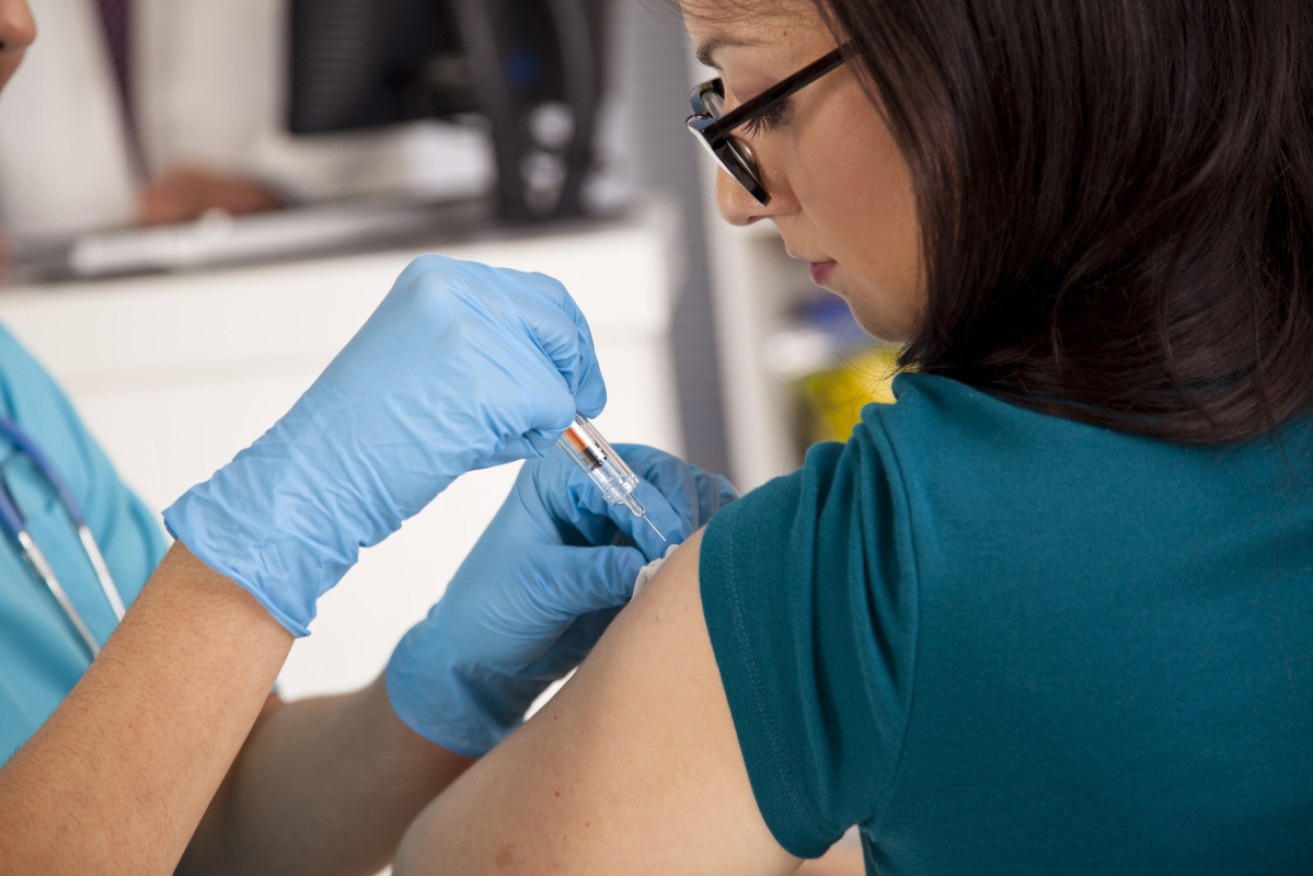
Hospitals have been flooded with an earlier than usual record number of flu-like illnesses. Photo: Getty


The key to avoiding the influenza this year? Vaccination. Photo: Getty
After a horror start to 2019 with an unseasonal spike in influenza activity, you might be wondering if you should get the flu jab early or wait until the government supply kicks in.
While the traditional flu season hasn’t started yet, there has already been a record number of confirmed flu cases this summer around the country.
“We have twice as high the incidence in the first part of this year compared to last year,” head of the clinical research team at the National Centre for Immunisation Research and Surveillance (NCIRS), Professor Robert Booy, said.
Professor Booy told The New Daily that vaccination timing is important and depended on an individual’s health status.
Pregnant women, who can access the free vaccine during any trimester, should get the jab as soon as possible.
“People over 65 should wait for the free vaccine in a few weeks, and they should be making an appointment with their health provider now. People with a chronic condition should also wait for the free vaccine in a few weeks,” he said.
“Anyone who is relatively young and healthy but may be in contact with someone at risk should get the vaccine now. Healthy people can pay for the vaccine through the pharmacy.”
RACGP president Dr Harry Nespolon advised that most people should hold off from vaccination until mid April to make sure they are protected until the end of the season.
“Typically, flu season affects Australia from June to September, with the peak being August,” Dr Nespolon wrote on the college’s news page.
“Recent evidence suggests that protection following flu vaccination may begin to wear off after three to four months, so timing of the vaccination is critical to make sure you are not unprotected at the end of the season.”
Latest figures show that there were 20,852 confirmed cases of the flu nationwide between January and March – compared with 10,403 cases last year, and 8305 cases in 2017 over the same period.
New South Wales has been the worst hit with 6648 confirmed cases so far; closely followed by Queensland with 6255 flu cases. South Australia (3180) and Victoria (2655) are not too far behind.
Earlier in March, Victorian health authorities confirmed a child had died from the flu amid a spike in cases across the state.
“It is unusual for children to die, it’s a relatively rare thing,” Victoria’s chief health officer Dr Brett Sutton told 3AW at the time.
“But it’s a reminder to all of us we’re not just protecting ourselves when we get the vaccine, we’re helping to protect those who are at risk, including children.”
Seven NSW residents – all of whom had pre-existing health conditions – died during influenza outbreaks at aged care centres between January and February.
The number of emergency admissions has also increased to “significantly above the historical range for this time of the year”, according to NSW Health.

Hospitals have been flooded with an earlier than usual record number of flu-like illnesses. Photo: Getty
The country’s chief medical officer Professor Brendan Murphy has urged individuals to get the flu shot this season even if they got it last year.
“It important to get the flu shot each year, as the virus changes each year. In addition we know that the protection provided by the previous year’s vaccine diminishes over time,” Professor Murphy said.
Those eligible for a free flu shot are:
More than 6 million doses of government-subsidised flu vaccine have been secured this year, including a new A strain and a new strain for the B Victoria lineage.
An enhanced trivalent vaccine is also being supplied this year for those aged 65 years and over.
A spokesperson from the federal health department told The New Daily the National Immunisation Program’s seasonal influenza supply will be available nationally from mid April, “subject to local distribution arrangements which are managed by states and territories.”
“Providers are advised they are able to commence vaccinating as soon as they receive vaccines,” the spokesperson said.